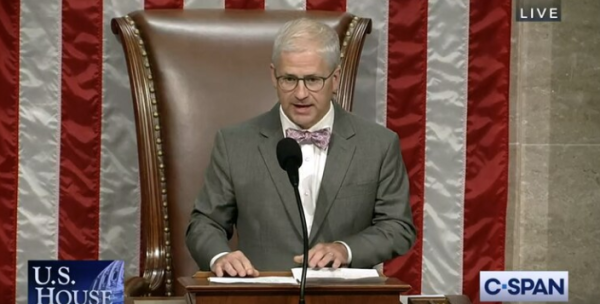
The European Commission decided to refer Greece to the European Court of Justice for three different cases. This means that for the specific cases it was found that the Greek authorities refused to comply with the European regulations and the relevant instructions of the European institutions, in the exchange of letters that precedes such a referral.
All three cases are of particular interest and have to do with chronic problems and inadequacies of the state.
In the first we have to do with the way the state behaves as a defaulter, in the second with the fact that our country still does not have up-to-date plans to manage the increasing risk of floods (something we have seen tragically this year in Thessaly) and in the third with the well-known plague of landfills that even when they stop being used are not restored.
First referral: the government that is constantly in arrears
In the first referral, Greece is not alone, since Italy and Belgium are also referred alongside. Here the reference concerns the long delay in payments by the Greek government.
In particular, Greece is accused because the public does not comply with the provisions of Directive 2011/7/EU, which concerns the delay in payments and repayments and provides for the payment of public obligations within 30 days (60 days for public hospitals).
In particular, Greece is accused of the long delay in payments by public hospitals to their suppliers, an element which, in the Commission’s opinion, undermines the viability of businesses operating in this sector at a critical time, especially small and medium businesses, especially if we look at the experience of the pandemic. Here the debate on Greece’s compliance started in 2019, but the problem remains so it’s time for the referral.
Last April, the Commission had sent a warning letter to Greece precisely on this issue, while it had made it clear that the practice of immediate repayment of long-term debts under the condition of waiving interest and surcharges is a violation of EU rules.
Second referral: the failure to update the flood risk maps
Greece’s second referral concerns the fact that the flood risk maps have not been updated, as required by Directive 2007/60/EC. In particular, all member states had an obligation to update the relevant maps – an issue that came to the fore after the disastrous floods in Thessaly – by March 22, 2020.
The Commission sent Greece a letter in February 2022 and a reasoned opinion in September 2022. However, until now the relevant maps have not been updated.
In fact, this update was necessary so that by December 22, 2021, the member states had also updated their flood risk management plans, which in the Greek case has not yet been done. For this omission there is a separate control procedure against Greece by the Commission.
According to the Commission, Greece is the only member that has not complied with this obligation to update flood risk.
Third citation: The landfill in Zakynthos has not yet been restituted
The third referral of Greece concerns the landfill in Zakynthos which was the subject of a previous decision of the European Court of Justice which decided that the specific landfill in Zakynthos does not meet the conditions and cannot operate.
On 28 April 2017, the Commission sent a formal notice to Greece for not complying with the decision. After that the dump was no longer used.
However, the restoration projects foreseen by the decision against Greece have not progressed, nor has a convincing timetable been presented by the Greek authorities.
On this basis, the case returns to the European Court of Justice.
Latest News

Airbnb: Greece’s Short-Term Rentals Dip in March Amid Easter Shift
Data from analytics firm AirDNA shows that average occupancy for short-term rentals dropped to 45% in March, down from 49% the same month last year.

Easter Week in Greece: Holy Friday in Orthodoxy Today
At the Vespers service on Friday evening the image of Christ is removed from the Cross and wrapped in a white cloth

Meloni and Trump Meet in Washington, Vow to Strengthen Western Ties
“I am 100% sure there will be no problems reaching a deal on tariffs with the EU—none whatsoever,” Trump stressed.

ECB Cuts Interest Rates by 25 Basis Points in Expected Move
The ECB’s Governing Council opted to lower the deposit facility rate—the benchmark for signaling monetary policy direction—citing an updated assessment of inflation prospects, the dynamics of underlying inflation, and the strength of monetary policy transmission.

Current Account Deficit Fell by €573.2ml Feb. 2025: BoG
The improvement of Greece’s current account was mainly attributed to a more robust balance of goods and, to a lesser extent, an improved primary income account

Hellenic Food Authority Issues Food Safety Tips for Easter
Food safety tips on how to make sure your lamb has been properly inspected and your eggs stay fresh.

Greek Kiwifruit Exports Smash 200,000-Ton Mark, Setting New Record
According to data by the Association of Greek Fruit, Vegetable and Juice Exporters, Incofruit Hellas, between September 1, 2024, and April 17, 2025, kiwifruit exports increased by 14.2%.

Easter Tourism Boom: Greece Sees 18.3% Surge in Hotel Bookings
Among foreign markets, Israel has emerged as the biggest growth driver, with hotel bookings more than doubling—up 178.5% year-on-year.

Greece to Launch Fast-Track Tender for Offshore Hydrocarbon Exploration
Last week, Papastavrou signed the acceptance of interest for the two Cretan blocks, while similar decisions regarding the two Ionian Sea blocks were signed by his predecessor

American-Hellenic Chamber of Commerce to Open Washington D.C. Branch
AmCham's new office aims aims to deepen U.S.-Greece economic ties and promote investment and innovation between the two countries







![Πλημμύρες: Σημειώθηκαν σε επίπεδα ρεκόρ στην Ευρώπη το 2024 [γράφημα]](https://www.ot.gr/wp-content/uploads/2025/04/FLOOD_HUNGRY-90x90.jpg)




![Airbnb: Πτωτικά κινήθηκε η ζήτηση τον Μάρτιο – Τι δείχνουν τα στοιχεία [γράφημα]](https://www.ot.gr/wp-content/uploads/2024/07/airbnb-gba8e58468_1280-1-90x90.jpg)

























![Airbnb: Πτωτικά κινήθηκε η ζήτηση τον Μάρτιο – Τι δείχνουν τα στοιχεία [γράφημα]](https://www.ot.gr/wp-content/uploads/2024/07/airbnb-gba8e58468_1280-1-600x500.jpg)


 Αριθμός Πιστοποίησης
Αριθμός Πιστοποίησης